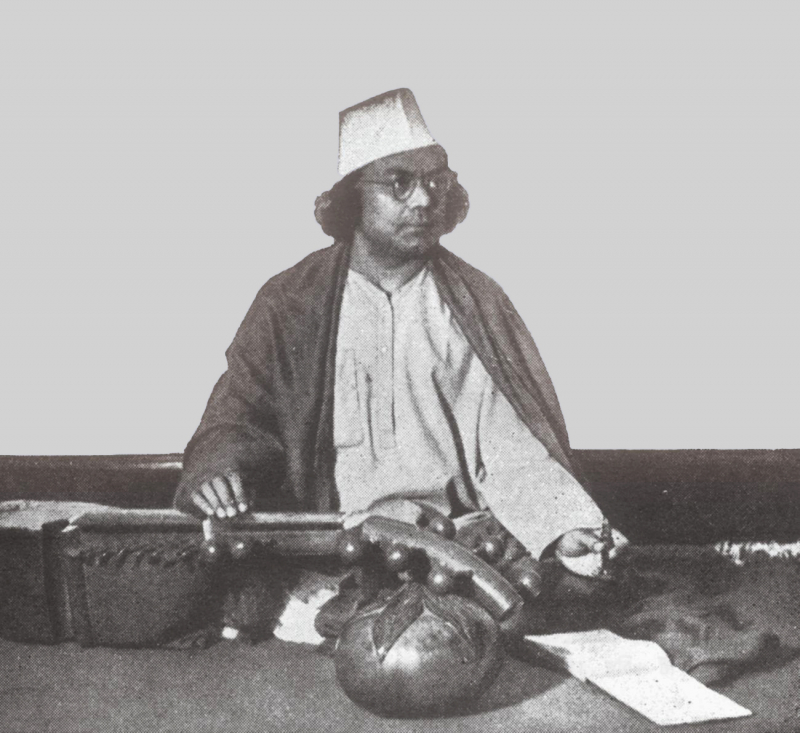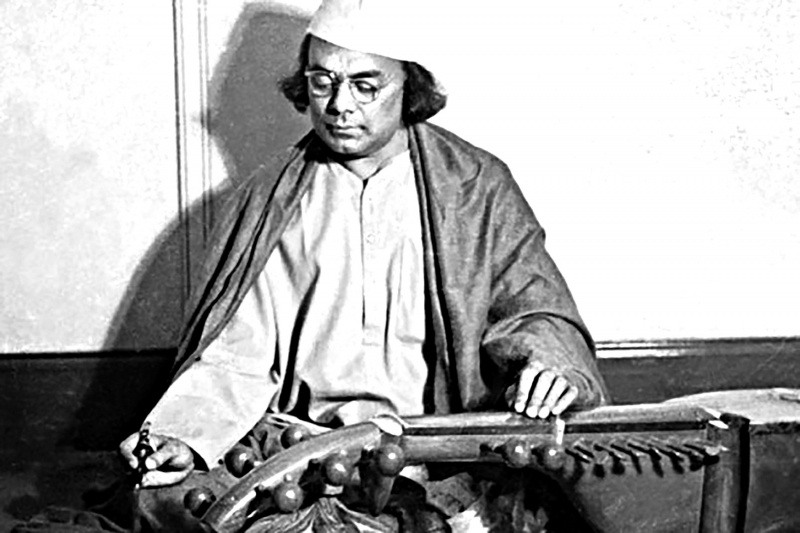Kazi Nazrul Islam
Kazi Nazrul Islam (26 May 1899 - 29 August 1976) was a Bengali poet, writer, and musician who served as Bangladesh's national poet. Nazrul is widely regarded as one of Bengali literature's greatest poets. Nazrul, as he was popularly known, wrote a large body of poetry, music, messages, novels, stories, and other works on topics such as equality, justice, anti-imperialism, humanity, rebellion against oppression, and religious devotion. Nazrul's activism for political and social justice, as well as his poem "Bidrohī," which means "the rebel" in Bengali, earned him the title "Bidrohī Kôbi" (Rebel Poet). His compositions are part of the Nazrul Gīti avant-garde music genre (Music of Nazrul).
Born into a Bengali Muslim Kazi family from the Burdwan district of Bengal Presidency (now West Bengal, India), Nazrul Islam received religious education and worked as a muezzin at a local mosque as a young man. While working with the rural theatrical group Leṭor Dôl, he learned about poetry, drama, and literature. Leṭo is a folk song genre of West Bengal that is typically performed by the region's Muslim community. In 1917, he joined the British Indian Army and was stationed in Karachi. After the war, Nazrul established himself as a journalist in Calcutta. Through his famous poetic works such as "Bidrohī " ('The Rebel') and "Bhangar Gan" ('The Song of Destruction'), as well as his publication Dhūmketu ('The Comet,' he criticized the British Raj and called for revolution. Because of his nationalist activism in the Indian independence movement, he was frequently imprisoned by colonial British authorities. While imprisoned, Nazrul wrote the "Rajbôndīr Jôbanbôndī " ('Deposition of a Political Prisoner'). During the Bangladesh Liberation War, his writings inspired many Bengalis in East Pakistan.
Nazrul's writings addressed issues such as liberty, humanity, love, and revolution. He was against all forms of bigotry and fundamentalism, including religious, caste, and gender-based bigotry. Nazrul wrote short stories, novels, and essays, but his songs and poems are his most famous works. He popularized Bengali-language ghazal songs. He is also known for using Arabic, Persian, and Urdu words extensively in his works.
Nazrul wrote and composed music for nearly 4,000 songs (many of which were released on HMV and gramophone records), which became known as Nazrul Gti. At the age of 43, he began to lose his voice and memory due to an unknown disease. Pick's disease, a rare incurable neurodegenerative disease, was diagnosed by a medical team in Vienna. It deteriorated Nazrul's health and forced him to live in isolation. He was also admitted to a psychiatric hospital in Ranchi (Jharkhand) for many years. Nazrul's family traveled to Bangladesh at the invitation of the government and settled in Dhaka in 1972. He passed away four years later, on August 29, 1976.








